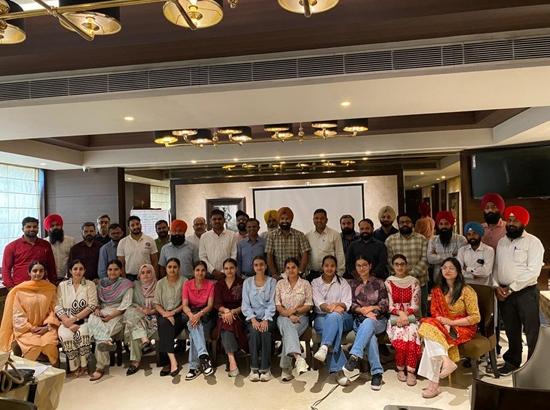
Photo Source: Babushahi Bureau
Over 50 groups unite for 'Saanjh Punjab' to tackle pollution, farming crisis
Babushahi Bureau
Ludhiana (Punjab), July 1, 2025: In a landmark gathering aimed at transforming Punjab’s agricultural landscape, more than 50 organizations came together today for the “Saanjh Punjab: Roundtable for Clean and Just Agricultural Futures” at Maharaja Regency, Ludhiana.
The event marked the launch of a bold new coalition committed to tackling the interconnected challenges of stubble burning, groundwater depletion, and declining agricultural diversity in the state.
The roundtable brought together a dynamic mix of farmers’ collectives, research institutions, civil society organizations, and government representatives. Under the theme “Collaborate, Consolidate, Commit,” participants mapped current initiatives across Punjab and formed thematic working groups to drive coordinated action:
A Common Minimum Program (CMP) was drafted during the convening, alongside an agreed coordination mechanism and the launch of a statewide WhatsApp group to enable real-time updates, resource-sharing, and decision-making.
Dr MS Bhullar, Director, Extension Education, Punjab Agricultural University (PAU) echoed this collaborative spirit: “Scientific research must work in tandem with grassroots wisdom,” noted a senior PAU official. “We’re committed to contributing technical support and guidance.”
One of the co-organizing platforms, Gurpreet Kaur from Clean Air Punjab, stressed that this roundtable is not a one-time event, but the foundation of a long-term, farmer-centric movement.
“For too long, efforts to combat pollution have left farmers out of the conversation,” said a Clean Air Punjab spokesperson.
“Saanjh Punjab is about shifting that dynamic—putting farmers at the centre and giving them the tools, trust, and support they need to lead this transformation.”
The coalition plans to finalize its joint action plan over the next two months, with monthly check-ins and follow-up meetings already scheduled to ensure ground-level progress.
“Saanjh Punjab” represents a critical shift—from blame to dialogue, from silos to solidarity, and from short-term fixes to long-term solutions grounded in equity, ecology, and evidence.